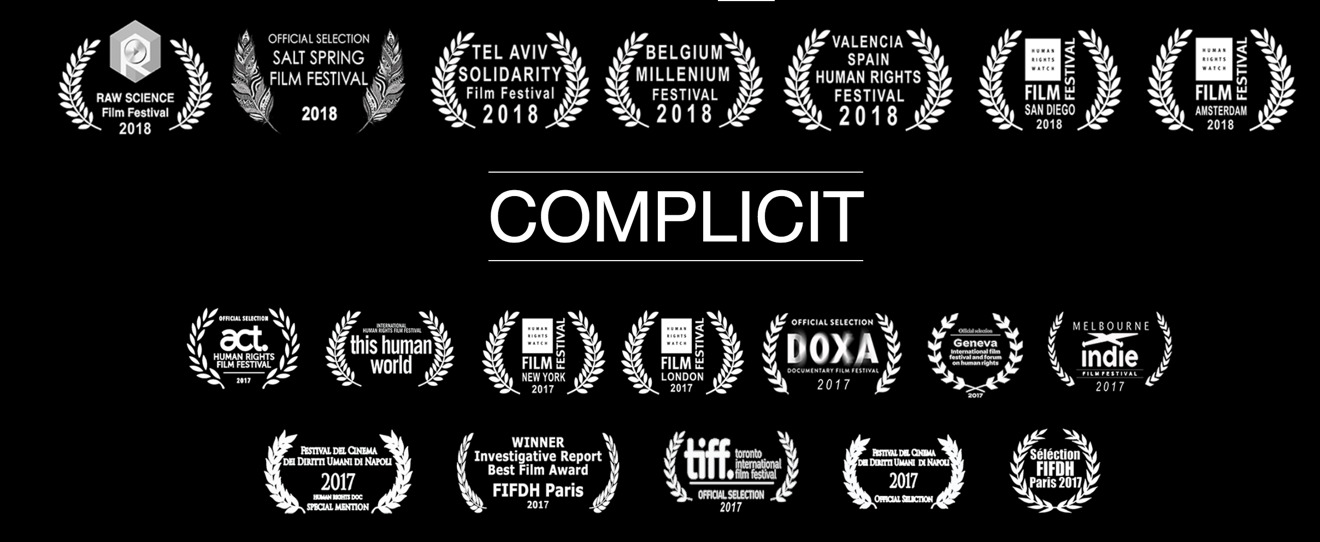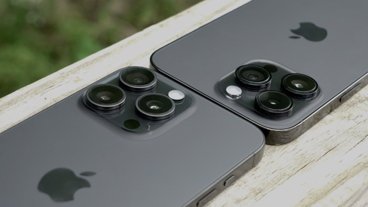Apple taken to task for actions of Chinese suppliers in 'Complicit' documentary [u]
'Complicit,' which showed at film festivals around the world the last two years and just aired on Australian television, says Chinese electronics firms use harmful chemicals that poison workers and Apple should be held completely responsible for it.
The 90-minute documentary feature has screened at nearly twenty film festivals in 2017 and 2018, and aired in a 44-minute version on Four Corners, a 60 Minutes-like newsmagazine show on Australia's ABC News. The film centers on Yi Yeting, a migrant worker-turned-activist who battled leukemia while fighting against terrible working conditions.
Confrontation
"The struggle to defend the lives of millions of Chinese people from becoming terminally ill due to working conditions necessitates confrontation with some of the world's largest brands including Apple and Samsung," according to the description when "Complicit" screened in February at the Human Rights Watch Film Festival.
Directed by Heather White & Lynn Zhang and filmed with hidden cameras over the course of four years in the Chinese regions of Shenzhen and Guangzhou, "Complicit" also tells the story of other young workers who have been exposed to dangeous chemicals, some of whom developed leukemia, as well as their fight for better conditions and practices in the electronics industry.
"Complicit" 2017 Trailer from ComplicitFilm on Vimeo.
The "Complicit" film began with a successful crowdfunding campaign in 2014, launched by New York-based director White; the Beijing-based Zhang is the co-director. In the last two years it was shown at the Toronto Film Festival, the Tel Aviv Solidarity Film Festival and the FIFDH Paris Festival, where it received the Investigative Report Best Film Award. A separate crowdfunding effort was launched to assist some of the workers featured in the film.
The idea of the film, starting with the title, is that those worldwide who use iPhones and other popular electronics are "complicit" in the pain caused by Chinese workers on their assembly line, and need to be held more accountable than they are.
The Benzene ban
In 2014, Apple banned the use of two chemicals used for cleaning, n-hexane and benzene, from the final assembly part of its production process, following worldwide pressure from activists. However, the chemicals are still allowed for the subcontracted construction of components such as screens and camera modules prior to full device assembly.
In 2010, 44 workers sued Wintek, an Apple contractor, alleging that they were exposed to n-hexane.
In 2016 Samsung, which is both a supplier and competitor to Apple, was accused of poisoning over 200 workers and covering it up.
The Four Corners web page for the film states, somewhat misleadingly, that "around 500 other chemicals are still used to produce electronics." Just about everything is a chemical, and most chemicals aren't dangerous.
The film is available on the TV show's website and on its app, but permissions don't allow it to be viewed in the United States.AppleInsider has requested to view a copy of the film.
Update One of the directors of the piece, Heather White, contacted AppleInsider about the documentary.
"The film doesn't say 'Chinese electronics firms use harmful chemicals that poison workers and Apple should be held completely responsible for it.'" writes White. "The film raises awareness about what is happening to workers exposed to toxic chemicals in the factories supplying Apple,Samsung, and others. Foxconn is Apple's lead supplier and Foxconn has had numerous documented violations."
"We leave it up to the audience to decide who is 'complicit' in what is happening to young assembly line workers in China," adds White. "We don't use the word complicit in the film and I've learned from our post-film Q & A session that everyone who sees it has a different takeaway: some feel the brands are complicit, and some feel that we as consumers are complicit."
White also provided a list of 500 chemicals used in the manufacturing process. Of the 500, about half have no toxicity, and the rest do have some. All of the risks can be mitigated with proper safety procedures, with the lack thereof at times appearing to be at the crux of the documentary.
White has offered a copy of the film to AppleInsider for review.
 Stephen Silver
Stephen Silver











 Marko Zivkovic
Marko Zivkovic
 Amber Neely
Amber Neely
 Christine McKee
Christine McKee
 Malcolm Owen
Malcolm Owen
 Mike Wuerthele and Malcolm Owen
Mike Wuerthele and Malcolm Owen

 William Gallagher
William Gallagher








